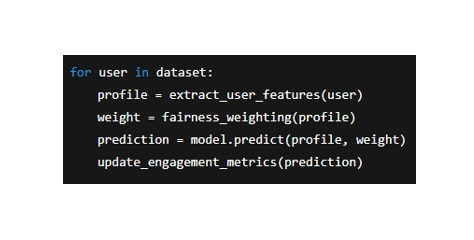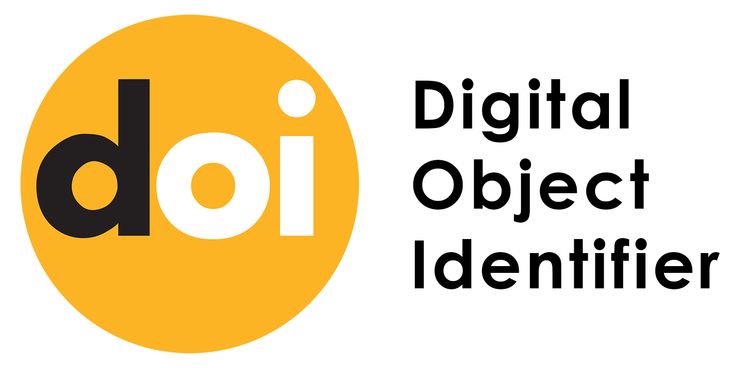Ethical AI in the Metaverse: A Mixed-Methods Study on Design Innovation, Social Implications, and Fairness Challenges
DOI:
https://doi.org/10.51903/ijgd.v3i1.2791Keywords:
artificial intelligence, metaverse, design innovation, ethical AI, social inclusivityAbstract
The rapid evolution of the metaverse has transformed virtual environments into dynamic and immersive spaces, with Artificial Intelligence (AI) playing a pivotal role in this transformation. However, despite AI’s contributions to design innovation, significant concerns remain regarding ethical, social, and technical challenges. This study aims to comprehensively analyze the role of AI in enhancing design innovations within the metaverse, while addressing issues of algorithmic bias, data privacy, and social inclusivity. Employing a mixed-methods approach, the research combines quantitative analysis of over 500,000 user interaction datasets from leading metaverse platforms—Decentraland, Roblox, and Meta Horizon—with qualitative insights from semi-structured interviews involving AI developers and UX/UI designers. Statistical analyses, including regression and clustering techniques, alongside thematic analysis, reveal that AI significantly enhances user engagement by improving avatar personalization and adaptive virtual environments. However, findings also highlight persistent risks such as biased algorithmic decisions, lack of transparency, and privacy vulnerabilities, which may hinder equitable participation in virtual spaces. The study further proposes and implements an AI model grounded in Human-Computer Interaction principles and fairness-aware machine learning to mitigate these issues. Results demonstrate improved user satisfaction, inclusivity, and social interaction quality. This research offers critical implications for developers, policymakers, and stakeholders, emphasizing the need for ethical AI governance and inclusive design frameworks in metaverse ecosystems. By bridging technological advancements with social responsibility, the study contributes to the development of a sustainable and equitable metaverse future.
References
Ali, S., Abdullah, Armand, T. P. T., Athar, A., Hussain, A., Ali, M., Yaseen, M., Joo, M. Il, & Kim, H. C. (2023). Metaverse in Healthcare Integrated with Explainable AI and Blockchain: Enabling Immersiveness, Ensuring Trust, and Providing Patient Data Security. Sensors 2023, Vol. 23, Page 565, 23(2), 565. https://doi.org/10.3390/S23020565
Alpala, L. O., Quiroga-Parra, D. J., Torres, J. C., & Peluffo-Ordóñez, D. H. (2022). Smart Factory Using Virtual Reality and Online Multi-User: Towards a Metaverse for Experimental Frameworks. Applied Sciences 2022, Vol. 12, Page 6258, 12(12), 6258. https://doi.org/10.3390/app12126258
AlShamsi, M., Salloum, S. A., Alshurideh, M., & Abdallah, S. (2021). Artificial Intelligence and Blockchain for Transparency in Governance. Studies in Computational Intelligence, 912, 219–230. https://doi.org/10.1007/978-3-030-51920-9_11
Atlam, H. F., Azad, M. A., Alzahrani, A. G., & Wills, G. (2020). A Review of Blockchain in Internet of Things and AI. Big Data and Cognitive Computing 2020, Vol. 4, Page 28, 4(4), 28. https://doi.org/10.3390/bdcc4040028
Bharany, S., Sharma, S., Khalaf, O. I., Abdulsahib, G. M., Al Humaimeedy, A. S., Aldhyani, T. H. H., Maashi, M., & Alkahtani, H. (2022). A Systematic Survey on Energy-Efficient Techniques in Sustainable Cloud Computing. Sustainability 2022, Vol. 14, Page 6256, 14(10), 6256. https://doi.org/10.3390/su14106256
Bhattacharya, P., Saraswat, D., Savaliya, D., Sanghavi, S., Verma, A., Sakariya, V., Tanwar, S., Sharma, R., Raboaca, M. S., & Manea, D. L. (2023). Towards Future Internet: The Metaverse Perspective for Diverse Industrial Applications. Mathematics 2023, Vol. 11, Page 941, 11(4), 941. https://doi.org/10.3390/math11040941
Farzaneh, H., Malehmirchegini, L., Bejan, A., Afolabi, T., Mulumba, A., & Daka, P. P. (2021). Artificial Intelligence Evolution in Smart Buildings for Energy Efficiency. Applied Sciences 2021, Vol. 11, Page 763, 11(2), 763. https://doi.org/10.3390/app11020763
Go, E. M., & Mothelsang, K. (2024). Trends in Modern Typography Design: Visual Preferences on E-Commerce Platforms. International Journal of Graphic Design, 2(2), 248–263. https://doi.org/10.51903/ijgd.v2i2.2147
Hasal, M., Nowaková, J., Ahmed Saghair, K., Abdulla, H., Snášel, V., & Ogiela, L. (2021). Chatbots: Security, privacy, data protection, and social aspects. Concurrency and Computation: Practice and Experience, 33(19), e6426. https://doi.org/10.1002/cpe.6426
Hermann, E. (2021). Leveraging Artificial Intelligence in Marketing for Social Good—An Ethical Perspective. Journal of Business Ethics 2021 179:1, 179(1), 43–61. https://doi.org/10.1007/s10551-021-04843-y
Hermann, E. (2022). Artificial intelligence and mass personalization of communication content—An ethical and literacy perspective. New Media & Society, 24(5), 1258–1277. https://doi.org/10.1177/14614448211022702
Hussain, A. A., & Al-Turjman, F. (2021). Artificial intelligence and blockchain: A review. Transactions on Emerging Telecommunications Technologies, 32(9), e4268. https://doi.org/10.1002/ett.4268
Katal, A., Dahiya, S., & Choudhury, T. (2023). Energy efficiency in cloud computing data centers: a survey on software technologies. Cluster Computing, 26(3), 1845–1875. https://doi.org/10.1007/S10586-022-03713-0
Kozinets, R. V. (2023). Immersive netnography: a novel method for service experience research in virtual reality, augmented reality and metaverse contexts. Journal of Service Management, 34(1), 100–125. https://doi.org/10.1108/josm-12-2021-0481
López, C. E., Cunningham, J., Ashour, O., & Tucker, C. S. (2020). Deep reinforcement learning for procedural content generation of 3D virtual environments. Journal of Computing and Information Science in Engineering, 20(5). https://doi.org/10.1115/1.4046293/1074423
Mourtzis, D., Angelopoulos, J., & Panopoulos, N. (2023). The Future of the Human–Machine Interface (HMI) in Society 5.0. Future Internet 2023, Vol. 15, Page 162, 15(5), 162. https://doi.org/10.3390/fi15050162
Obar, J. A., & Oeldorf-Hirsch, A. (2020). The biggest lie on the Internet: ignoring the privacy policies and terms of service policies of social networking services. Information, Communication & Society, 23(1), 128–147. https://doi.org/10.1080/1369118x.2018.1486870
Quach, S., Thaichon, P., Martin, K. D., Weaven, S., & Palmatier, R. W. (2022). Digital technologies: tensions in privacy and data. Journal of the Academy of Marketing Science, 50(6), 1299–1323. https://doi.org/10.1007/s11747-022-00845-y
Sands, S., Demsar, V., Ferraro, C., Campbell, C., & Cohen, J. (2024). Inauthentic inclusion: Exploring how intention to use AI-generated diverse models can backfire. Psychology & Marketing, 41(6), 1396–1413. https://doi.org/10.1002/mar.21987
Si, S., Hall, J., Suddaby, R., Ahlstrom, D., & Wei, J. (2023). Technology, entrepreneurship, innovation and social change in digital economics. Technovation, 119, 102484. https://doi.org/10.1016/j.technovation.2022.102484
Soliman, M. M., Ahmed, E., Darwish, A., & Hassanien, A. E. (2024). Artificial intelligence powered Metaverse: analysis, challenges and future perspectives. Artificial Intelligence Review, 57(2), 1–46. https://doi.org/10.1007/s10462-023-10641-x
Tien, P. W., Wei, S., Darkwa, J., Wood, C., & Calautit, J. K. (2022). Machine Learning and Deep Learning Methods for Enhancing Building Energy Efficiency and Indoor Environmental Quality – A Review. Energy and AI, 10, 100198. https://doi.org/10.1016/j.egyai.2022.100198
Wang, Y., Su, Z., Zhang, N., Xing, R., Liu, D., Luan, T. H., & Shen, X. (2023). A Survey on Metaverse: Fundamentals, Security, and Privacy. IEEE Communications Surveys and Tutorials, 25(1), 319–352. https://doi.org/10.1109/comst.2022.3202047
Wang, Z., Li, M., Lu, J., & Cheng, X. (2022). Business Innovation based on artificial intelligence and Blockchain technology. Information Processing & Management, 59(1), 102759. https://doi.org/10.1016/j.ipm.2021.102759
Xiao, R., Wu, Z., & Hamari, J. (2022). Internet-of-Gamification: A Review of Literature on IoT-enabled Gamification for User Engagement. International Journal of Human–Computer Interaction, 38(12), 1113–1137. https://doi.org/10.1080/10447318.2021.1990517
Yaqoob, I., Salah, K., Jayaraman, R., & Omar, M. (2023). Metaverse applications in smart cities: Enabling technologies, opportunities, challenges, and future directions. Internet of Things, 23, 100884. https://doi.org/10.1016/j.iot.2023.100884
Yu, J., Dickinger, A., So, K. K. F., & Egger, R. (2024). Artificial intelligence-generated virtual influencer: Examining the effects of emotional display on user engagement. Journal of Retailing and Consumer Services, 76, 103560. https://doi.org/10.1016/j.jretconser.2023.103560
Yunianto, I., & Wahyudi, W. (2024). Designing User Experience for a Mobile Application for Agricultural Product Marketing Using the Human-Centered Design Method. International Journal of Graphic Design, 2(2), 207–221. https://doi.org/10.51903/ijgd.v2i2.2123
Zhang, J., & Zhang, Z. ming. (2023). Ethics and governance of trustworthy medical artificial intelligence. BMC Medical Informatics and Decision Making, 23(1), 1–15. https://doi.org/10.1186/s12911-023-02103-9

Downloads
Published
Issue
Section
License
Copyright (c) 2025 International Journal of Graphic Design

This work is licensed under a Creative Commons Attribution-ShareAlike 4.0 International License.
This work is licensed under a Creative Commons Attribution-ShareAlike 4.0 International License (CC BY-SA 4.0).
This license allows others to copy, distribute, display, and perform the work, and derivative works based upon it, for both commercial and non-commercial purposes, as long as they credit the original author(s) and license their new creations under identical terms.
Licensed under CC BY-SA 4.0: https://creativecommons.org/licenses/by-sa/4.0/











5.png)

